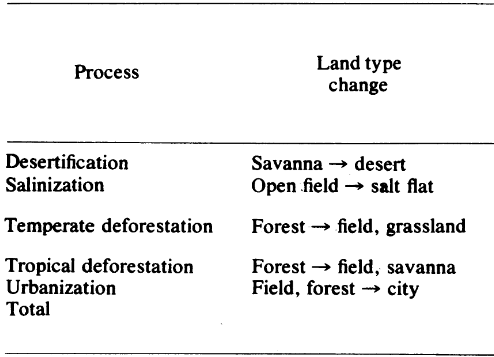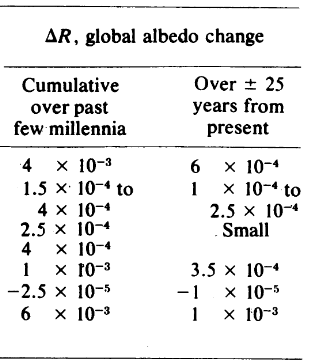I think there is already some evidence of changes to cloud, types of clouds and cover, area whatever, which influenced albedo
is there likely to be revealed some dimension or aspects of structure in the environment and environmental systems that substantially have gone unaccounted for or underestimated, of global warming trend analysis, if you like
I think so, probably is some evidence of that already
the shortcoming is probably in the view of climate change that fails to consider the structure conversion humans perform, or from human activities, which there are a lot of and growing
my view is that a lot of structure is got from global cooling, and preserved, or more generally at different scales it’s been on the condensate side of thermal equations, whereas human activity sort of pumps everything up to a more energetic state, by burning too much fossil fuel for example, and little thought while doing that is given to the structure in large deposits of coal, oil and gas under the ground, more inert when it’s there
similarly little thought is given to the structure of large areas of ice, presently melting away
the joy of earth, life on earth, the reason it ever came to be, was because of some fortuitous circumstances, a complete accident, a lot of accidents, but when I look out at the stars, my very basic astronomy and thermodynamics or whatever tells me what came to be largely by cooling, expansion and cooling, even the milky way we reside, irion or whatever


